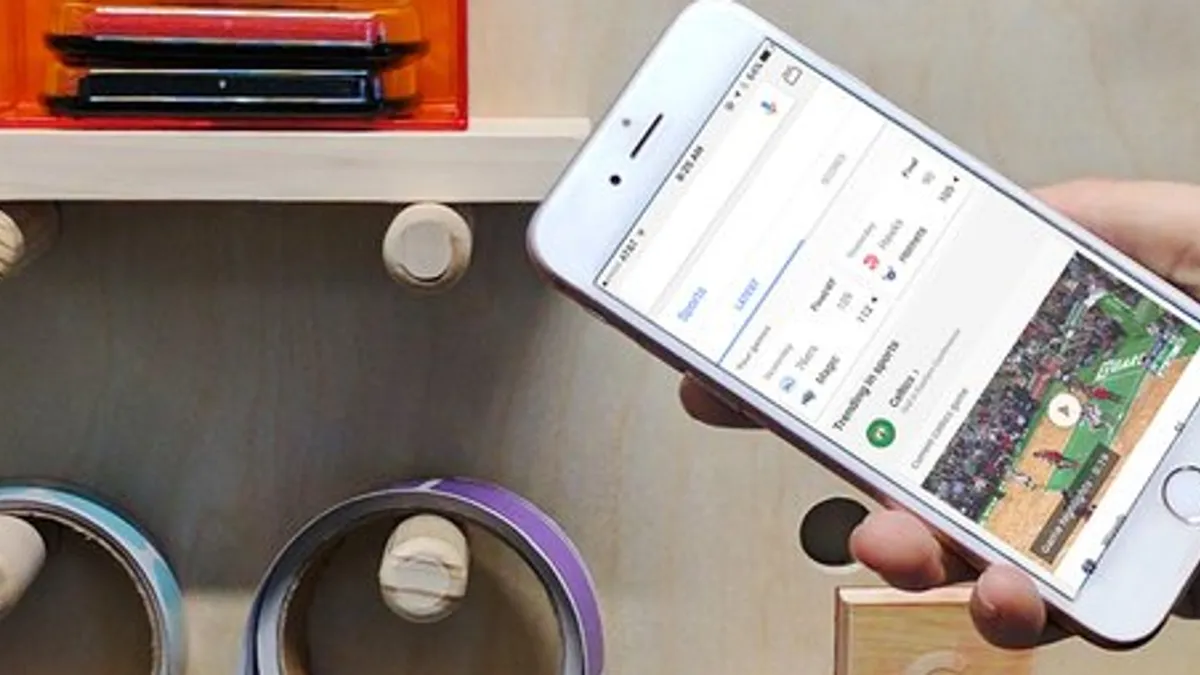Dive Brief:
- UPDATE: Google announced on Thursday, Sept. 21, that it's paying $1.1 billion to bring on board 2,000 HTC engineers and technical staff to build out its fledgling smartphone and hardware business, CNN Tech reported. "These future fellow Googlers are amazing folks we've already been working with closely on the Pixel smartphone line, and we're excited to see what we can do together as one team," Rick Osterloh, SVP of hardware at Google, wrote in a company blog post. "The deal also includes a non-exclusive license for HTC intellectual property."
- Google plans to buy assets from the embattled manufacturing giant HTC as it looks to strengthen its hardware business, including its Pixel line of mobile devices, Bloomberg reported, citing an unnamed source. Both Google and HTC declined to comment to Bloomberg.
-
Having a more established hardware foothold will help Google tie together its suite of products and continue to scale software like Google Assistant and its augmented reality platform. Bloomberg noted these offerings and especially AR require more sophisticated cameras and sensors to effectively operate. Google has attempted to push into hardware before but has largely come up short, including through deals with Motorola Mobility — which it bought for $12.5 billion in 2012 only to sell for $3 billion less than three years later — and Nest Labs, which is now under parent company Alphabet's banner.
- A few developments lend credence to a move from Google: HTC will hold a town hall meeting on Thursday, Sept. 21, when shares will be suspended from trading thanks to a pending announcement, per Bloomberg. The publication reported in August that HTC is exploring selling off its handset and virtual reality divisions, and has talked to Google in the process. Google might buy HTC's original design business for $330 million, keeping the HTC brand and snapping up 100 of the manufacturer's engineers, Bloomberg said, citing the website Apple Daily.
Dive Insight:
Google might've faltered in previous attempts to leave an imprint with its hardware, but a positive reception to the Pixel phone, which launched last year and was built by HTC, and the growing popularity of mobile-first technologies like digital assistants and AR could make the asset acquisition significant. As Bloomberg noted, the play would also be a strategic move against Apple, which is in the midst of rolling out its iPhone X and iPhone 8 smartphones, along with iOS 11 operating system.
With iOS 11, Apple is introducing its ARKit to help software developers and brands design apps that take advantage of the technology. Earlier this month, Google unveiled a preview of its new AR platform called ARCore — a more scalable and nimble replacement to the experimental Tango — in order to get ahead of Apple. The HTC buys, if confirmed, suggest that Google is trying to get a similar leg up with physical products. While no concrete timeline was mentioned, this could potentially factor into the crucial holiday shopping season.
The news would also fit into a growing trend in the tech space where some of the biggest players are trying to bolster hardware initiatives in order to attain comprehensive control of the product pipeline and overall user experience. Facebook, which is the second-largest digital advertising platform behind Google, is rumored to be working on two new offerings — a touchscreen video chat device that could arrive as early as next spring ahead of its F8 developer conference and also a smart speaker. Like Google, Facebook has frequently stumbled in getting hardware off the ground. E-commerce giant Amazon has also quickly added new hardware products to its roster, and it originally popularized the smart speaker craze with its Alexa-enabled Echo devices.
Controlling hardware is important to these companies as consumers spend more time on mobile devices and less on screens like TV and desktop. Mobile ad spending will nearly double to $155 billion in 2019 from $79 billion in 2016, according to forecasts from Zenith, defying the slower pace of growth on other channels.















